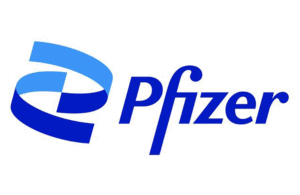 New York City–based Pfizer (NYSE:PFE) announced that its full-year 2022 revenues were $100.3 billion, a record for the company.
New York City–based Pfizer (NYSE:PFE) announced that its full-year 2022 revenues were $100.3 billion, a record for the company.
Pfizer has more than doubled its revenue compared to 2020 when it generated $42.9 billion in sales. In 2021, its revenue hit $81.3 billion.
But the company will likely have trouble sustaining that momentum, considering its revenues, excluding contributions from its COVID-19 products Paxlovid and Comirnaty, were up just 2% operationally.
In 2022, Paxlovid and Comirnaty drove close to $57 billion, almost 60% of the company’s revenue.
Pfizer anticipates that Comirnaty will generate approximately $13.5 billion in 2023 and Paxlovid another $8 billion in 2023. That would be a 64% and 58% reduction compared with the 2022 figures.
The company attributes part of the sales decline to ample U.S. government supply of the products.
The government plans to transition COVID-19 vaccines and other therapies to the private market in 2023.
Pfizer’s shares were mostly flat in mid-day trading, ticking up 0.034% to $43.57.
Its stock price was down about 15% in January.
Rival Moderna (Nasdaq:MRNA) has had its stock dip 2.66% in the same timeframe.
The company is also sharpening its focus on RSV. In November 2022, it announced its RSV vaccine candidate for maternal immunization was effective against infant death. The vaccine could become the first maternal vaccine to protect against infant RSV death.
It could also win FDA approval in older adults.
Pfizer has also acquired the RSV therapeutics firm ReViral for $525 million, which it expects will generate $1.5 billion in revenue.
The company is also launching a Phase 3 study for its influenza vaccine.
Pfizer also noted that it was removing eight programs from its pipeline, including the dwarfism candidate recifercept and two proposed Paxlovid indications.
The company plans to reinvigorate its pipeline to boost long-term revenue prospects.
Filed Under: Infectious Disease



